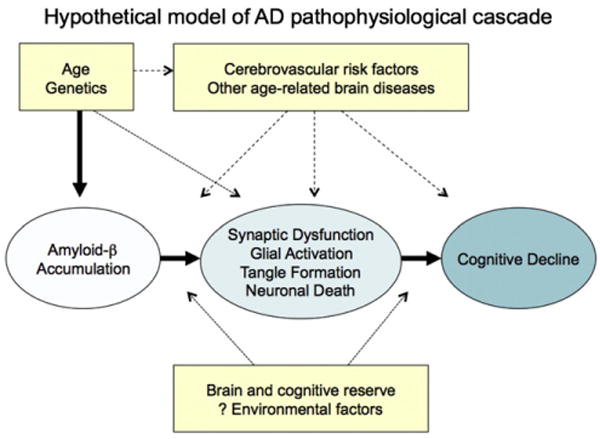Fig. 2.

Hypothetical model of the Alzheimer's disease (AD) pathophysiological sequence leading to cognitive impairment. This model postulates that amyloid beta (Aβ) accumulation is an “upstream” event in the cascade that is associated with “downstream” synaptic dysfunction, neurodegeneration, and eventual neuronal loss. Note that although recent work from animal models suggests that specific forms of Aβ may cause both functional and morphological synaptic changes, it remains unknown whether Aβ is sufficient to incite the neurodegenerative process in sporadic late-onset AD. Age and genetics, as well as other specific host factors, such as brain and cognitive reserve, or other brain diseases may influence the response to Aβ and/or the pace of progression toward the clinical manifestations of AD.
